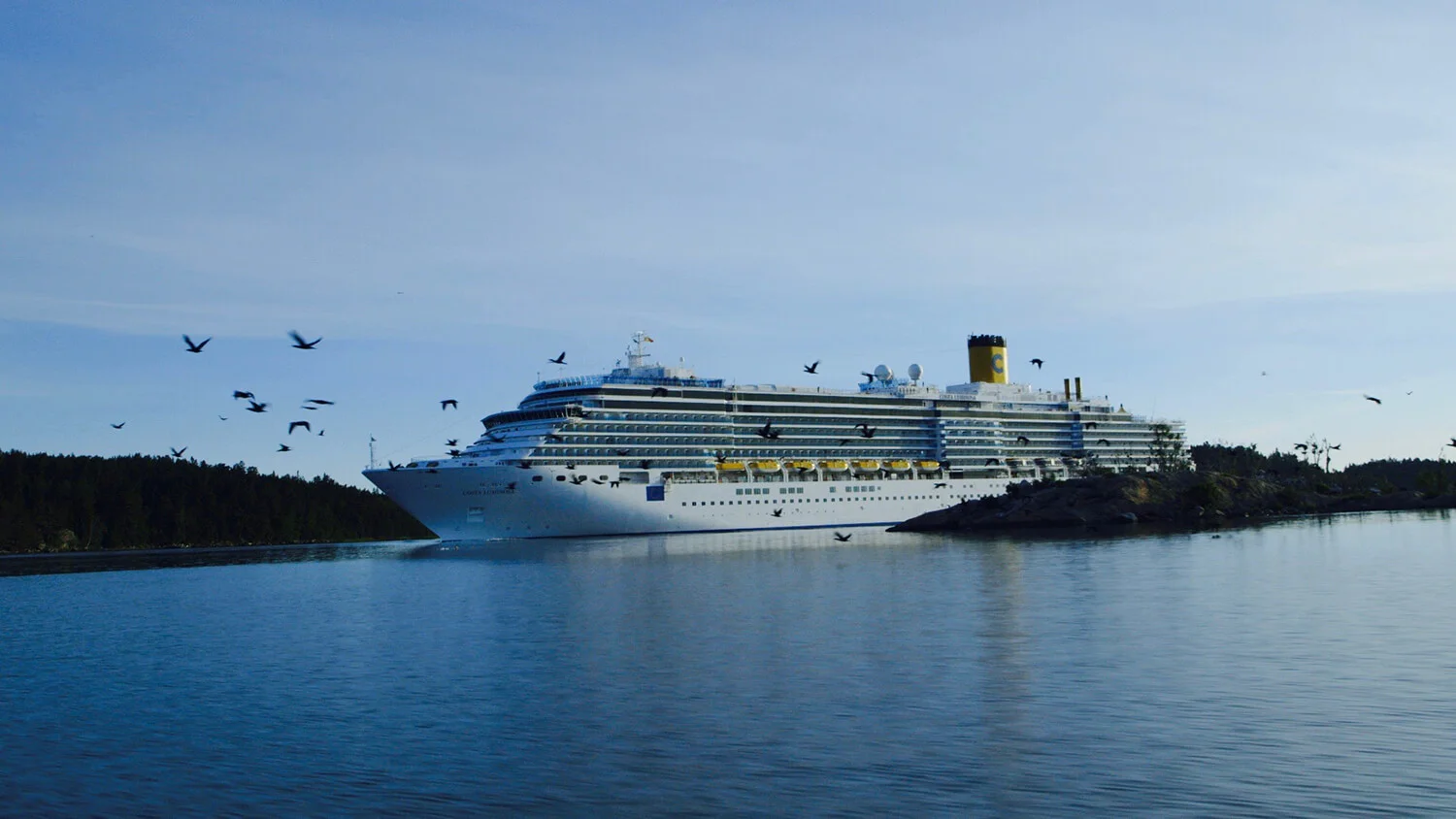Shipping Pollution
We took a close look at the expanding cruise industry – and we couldn't believe our own eyes.
This is a thorough investigation of how increased shipping affects the Baltic Sea. The film made headlines after reveling how cruise ships dump their toilet water straight into the sea. After the film, international regulations were imposed, banning cruise ships from dumping sewage into the Baltic Sea.
The Baltic Sea contains one of the highest concentrations of shipping in the world. At the same time, the Baltic Sea is one of the most sensitive landlocked seas in the world. And shipping has impaired the environment and citizens to an extent that most people are unaware of.
Day and night – thousands of vessels are carrying vital goods to millions of people around the sea. Almost everything we consume has been shipped on water. However, large parts of the Baltic sea are in distress. We have documented dead sea beds and suffering wildlife.
And when we took a closer look at the expanding cruise industry – we could not believe our own eyes.
Gigantic floating cities with thousands of inhabitants. All of them eating and drinking – and producing huge amounts of sewage and toilet water. But instead of using port facilities the cruise ships dump their toilet water straight into the sea.
So we tracked down the experts at the highest international level. The whistle-blowers and the scientists who call for action and rectification. Those who have made astonishing findings and drawn frightening conclusions.
Producer/Director Folke Rydén
Reporter Carolina Jemsby
Title Shipping Pollution / Hotet på havet
Length 1 x 28/52/58 minutes
Release 2015
2016 The Green Award and 1.000 Euro in Eckernförde at the annual International Wildlife Film Festival GREEN SCREEN.
2016 20.000 Euro award to Folke for his depictions of the threats to the Baltic Sea.
Educational material
Lessons to learn about shipping
Hotet på havet – the Swedish version of Shipping Pollution (28 minutes)



